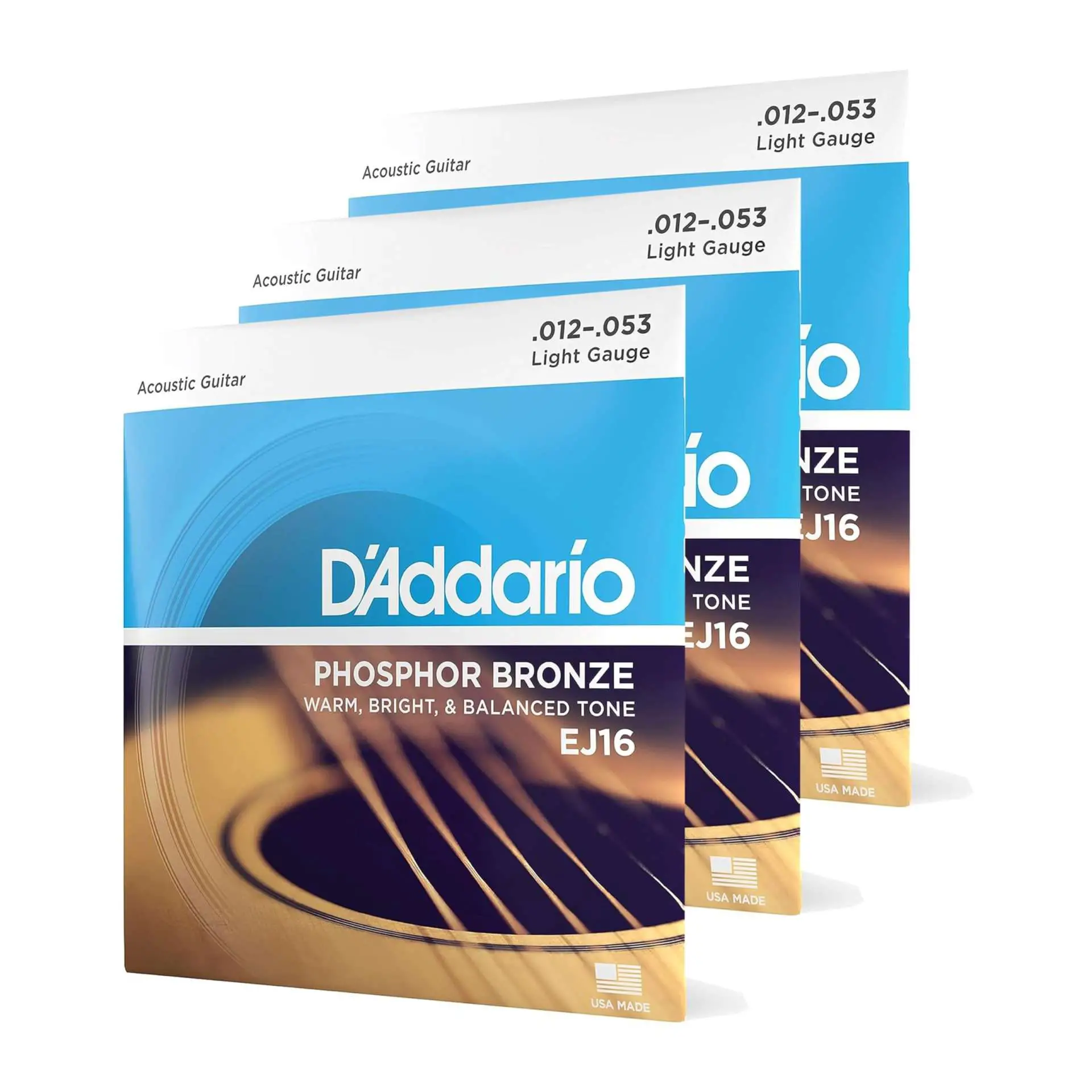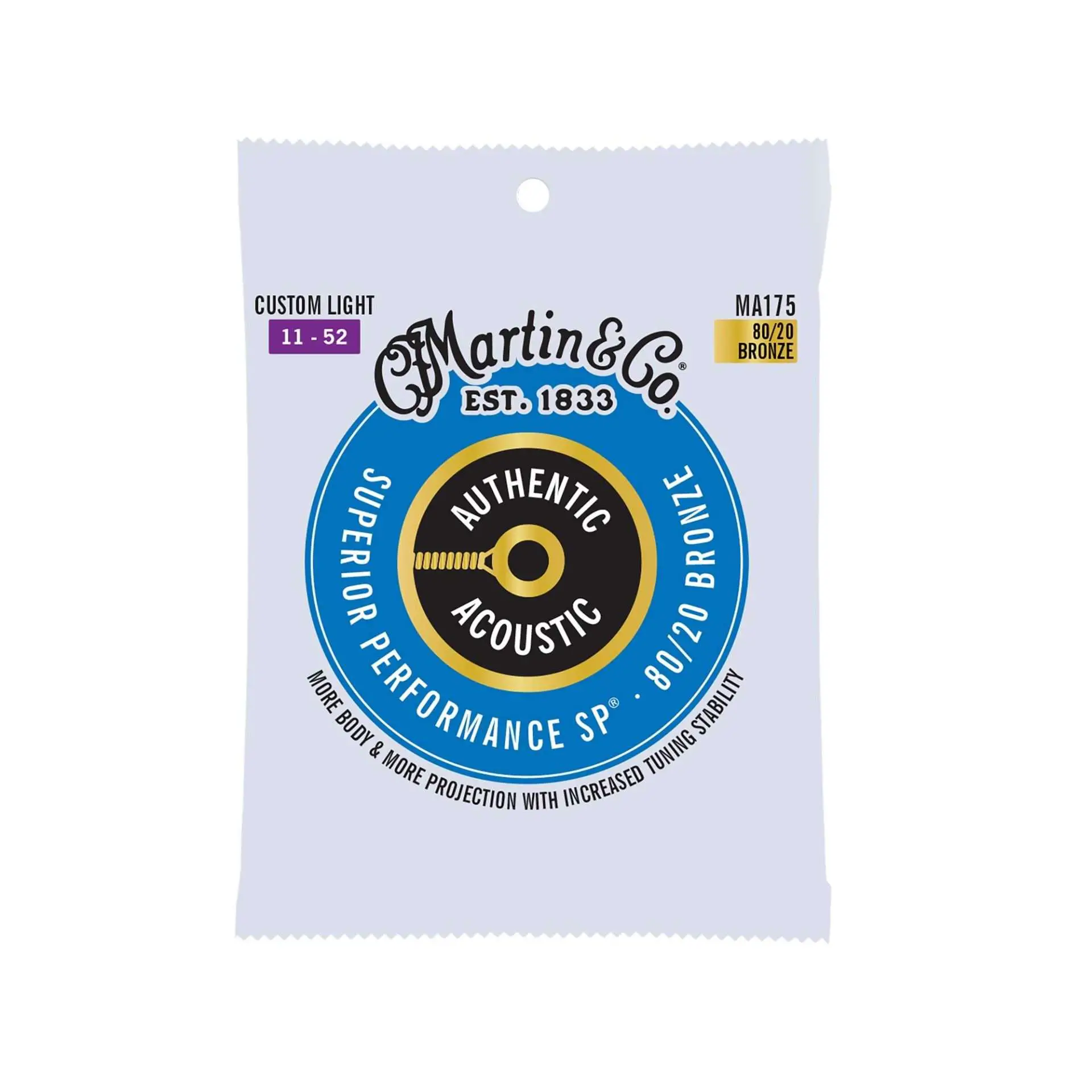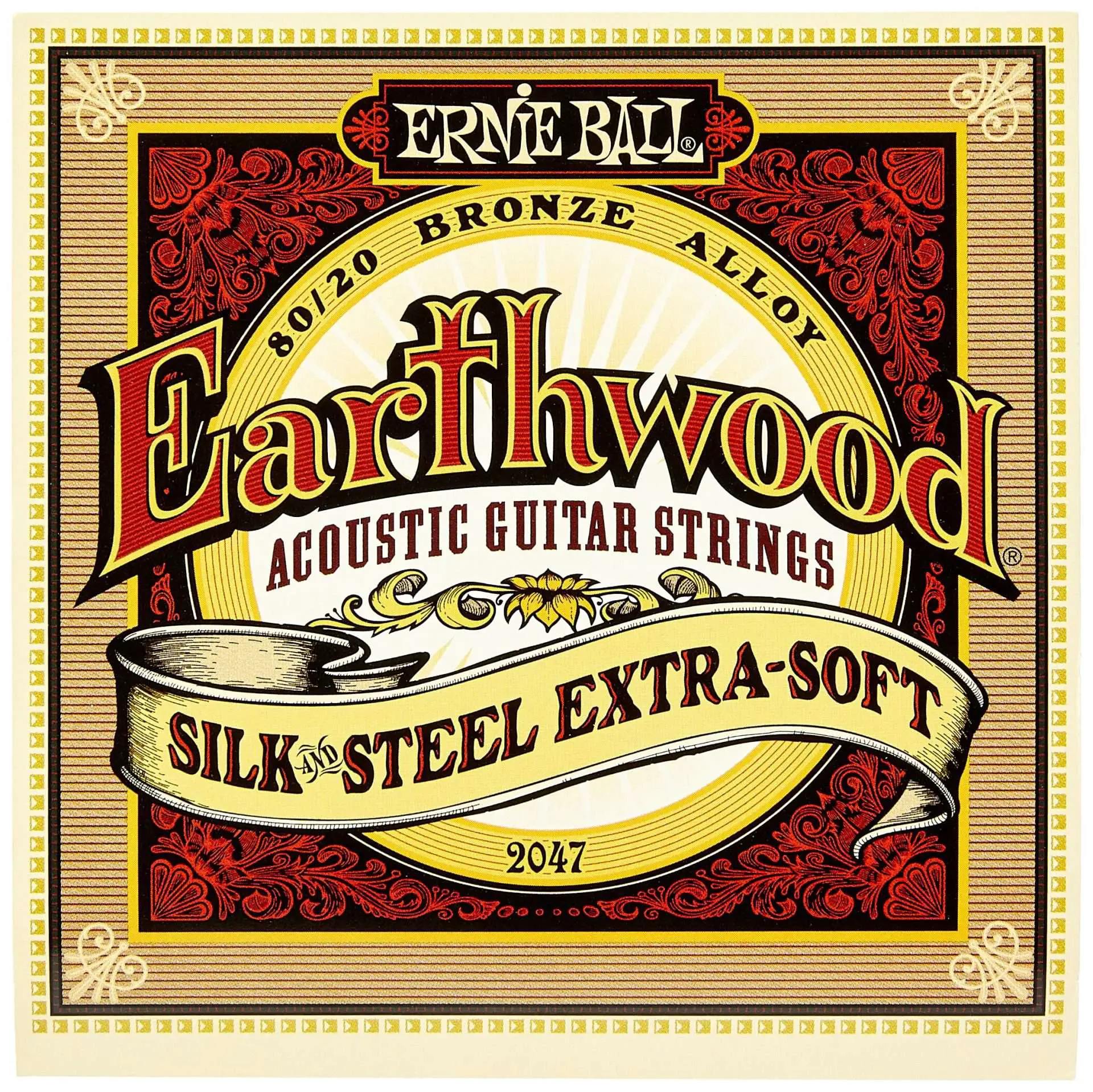Acoustic guitars have long charmed musicians and audiences alike with their rich, natural sound. The beauty of an acoustic guitar rests not only in the craftsmanship of the instrument itself but also in the strings that vibrate to fill the room with music. Finding the best acoustic guitar strings for beginners can significantly impact both playability & the learning process. The type of string can affect the ease with which a student plays, the sound produced, and the confidence that can be gained from progressing.
When stepping into the vast world of acoustic guitar strings, beginners should note that strings vary in material, gauge (thickness), and coating. Each of these factors contributes to the sound quality, playing comfort, and the longevity of the strings. Beginners might prefer lighter string gauges as they are easier to press down with less finger strength and generally more comfortable for new players.
Materials like phosphor bronze are commonly recommended for their warm tone and balanced sound. Durability is another critical factor, as strings with coatings tend to last longer and resist the oils and dirt from a player’s fingers. This keeps the strings sounding fresher for a more extended period, which is beneficial for beginners who might not yet be accustomed to the signs of aging strings.
It is also worth considering the tension of the strings, as too high tension can make the guitar harder to play, while too low can affect the sound quality and tuning stability.
After testing numerous sets, we found that the best beginner strings offer a blend of easy playability, durability, and satisfying sound. Our research and hands-on testing have led us to find a selection of strings that will both encourage new players in their practice and ensure their guitar sounds its best.

Choosing the Best Acoustic Guitar Strings for Beginners
As novices in the world of music, we understand choosing your first guitar strings can be a bit overwhelming. For ease of playing and comfort, it’s crucial to find strings that match both your instrument and skill level. Our curation aims to highlight the top acoustic guitar strings that are ideal for beginners, ensuring a smooth learning experience while lessening finger pains. For this reason, we primarily recommend new players to start with lighter gauge strings and work up if they feel necessary.
D’Addario Phosphor Bronze Strings

These D’Addario Phosphor Bronze Acoustic Guitar Strings should certainly be on your radar for their rich tonality and comfortable playability.
Pros
- Corrosion resistance enhances longevity
- Warm and balanced tone complements a variety of genres
- Made in the USA with high-quality standards
Cons
- May require a brief break-in period for optimal performance
- Light gauge might not suit players preferring a heavier tension
- Brightness can fade over time with frequent use
Having strummed my way through countless sets of strings, the D’Addario Phosphor Bronze have stood out for their dependable quality.
Initially, they exude a bright, crisp sound that breathes new life into any acoustic guitar. It’s the warmth and balance, however, that solidify their spot at the top of a beginner’s list.
These strings offer a smooth playing experience, which is crucial when you’re spending hours practicing chords and scales. Their durability is noteworthy; a fresh set can maintain its tonal qualities for weeks, even under daily play. It’s an asset when you’re looking to minimize maintenance and maximize playing time.
The environmentally conscious will appreciate D’Addario’s commitment to sustainability. The recyclable packaging and the Players Circle points are a testament to the brand’s focus on the future. For a beginner looking for a reliable set of strings that will deliver consistent tone and playability, this set from D’Addario is an exceptional choice.
Martin Acoustic Light Strings

We found these Martin strings to be a dynamic choice for beginners, offering excellent playability and a balanced tone that encourages persistent practice.
Pros
- Easy on the fingers, reducing fatigue
- Bright initial sound that mellows for versatile playing
- These strings hold their tuning exceptionally well
Cons
- Slightly higher price point than some competitors
- May require more frequent changes for avid players
- Limited to lighter gauges for some guitar models
After trying these strings on a beginner’s acoustic guitar, their comfort was immediately apparent, easing the learning process. The strings felt soft to the touch, and hours of practice didn’t result in the usual finger soreness. Their initial bright sound was inviting, which is encouraging for any novice wanting to hear progress in their music.
The transition of the sound from a bright to a more mellow tone happened smoothly, something beginners will appreciate as it offers a gentle introduction to the acoustic guitar’s dynamic range. It proved to us a beneficial feature for those forming their unique style and craving exploration.
Our tuning experience was also straightforward. Once stretched in, the Martin strings’ stability became evident, as tuning adjustments were rarely needed during sessions. This reliability is a strong point for learners who might find frequent re-tuning frustrating.
Ernie Ball Earthwood Silk & Steel Extra-Soft Strings

We found that these strings offer a beautiful balance of playability and tone, ideal for beginners honing their skills.
Pros
- Gentle on the fingers, facilitating longer practice sessions
- Warm, mellow sound enriching the acoustic experience
- Resilient build quality, enduring frequent use
Cons
- Less bright tone, which might not suit all playing styles
- May require more frequent changes for consistent sound quality
- Silk layer might reduce some of the string’s vibrancy compared to traditional bronze strings
I recently restrung my guitar with the Ernie Ball Earthwood Extra-Soft acoustic guitar strings, and the difference in comfort was immediately noticeable.
The silk interlayer has given the strings a soft touch that’s a real boon for callus-free beginners. Playing for hours has become more bearable, allowing for extended practice without the discomfort that typically comes with steel strings.
The sound quality, on the other hand, was unexpectedly rich and warm. I’ve always favored strings that can deliver a full-bodied tone, and these didn’t disappoint. These silk and steel strings have added a lovely, mellow timbre to my guitar, perfect for folk and fingerstyle pieces that thrive on subtlety.
Durability is often a concern with softer strings, but so far, these have held up admirably. Understandably, no string is immortal, and I’d be prepared to replace them somewhat sooner than I would harder strings. However, for beginners who are still learning the ropes and might not be as intensive with their playing, these strings should last long enough to be a worthy investment.
Buying Guide
String Gauge
When evaluating string gauges, it’s important for us to understand the trade-offs between lighter and heavier strings:
| Gauge Type | Tension | Playability | Sound |
|---|---|---|---|
| Light | Lower | Easier | Brighter |
| Medium | Medium | Moderate | Balanced |
| Heavy | Higher | Harder | Warmer |
Lighter strings are typically easier on the fingers, making them ideal for beginners. However, heavier strings can provide a richer sound and more volume.
Material
The material of the strings influences both the feel and the tone:
- Bronze: Bright and clear tone, but they may oxidize more quickly.
- Phosphor Bronze: Warmer and more durable than bronze.
- Silk and Steel: Gentle on the fingers and produce a mellow sound, recommended for beginners.
Coating
Coated strings last longer by protecting against moisture and oils:
- Uncoated: Traditionally, these strings have a more natural feel and a brighter sound but wear out faster.
- Coated: These offer extended lifespan and less finger squeak.
String Core Shape
The shape of the core affects the playability and tone:
- Round Core: Traditionally, offers a warmer tone but typically require more finger pressure.
- Hex Core: More common, provides a brighter tone and better tuning stability.
By weighing these features against our personal needs and preferences, we can make a decision about which string specifications will best support our beginning endeavors on the acoustic guitar.
